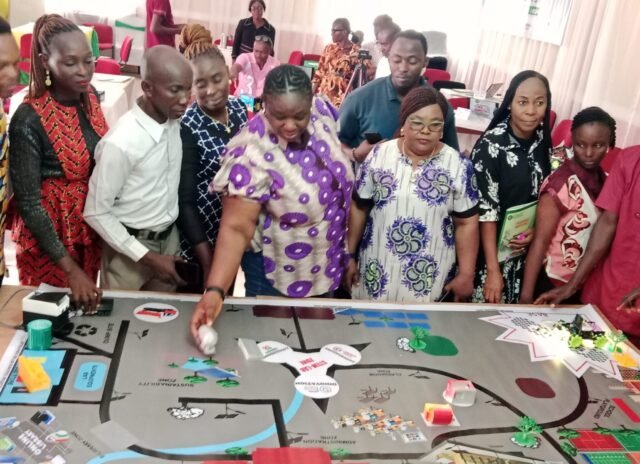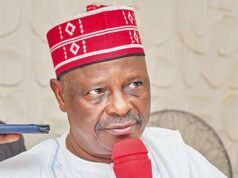Lagos State’s Ministry of Basic and Secondary Education has officially launched a groundbreaking train‑the‑trainer program designed to equip teachers and adjunct instructors across the state with the skills needed to teach robotics. This strategic move is part of a broader push to embed robotics into the state’s educational curriculum—a first step toward positioning Lagos students at the forefront of STEM innovation.
The announcement came during the 2025 Nigeria National World Robot Olympiad (WRO) event held in Lagos. Commissioner for Basic and Secondary Education, Jamiu Ali‑Balogun, explained that the ministry is preparing educators ahead of rolling out robotics education in classrooms.
“Robotics is the future. We must incorporate it into our national curriculum,” Ali‑Balogun stated during his address at the WRO event
Strategic Curriculum Reform
Ali‑Balogun emphasized that the national curriculum is currently being revised to formally include robotics as a school subject. While the template has been crafted, it is still undergoing reviews and awaiting distribution to states, including Lagos.
However, aligning the new curriculum with existing national examinations remains a complex task. The ministry is actively coordinating with both the West African Examinations Council (WAEC) and the National Examinations Council (NECO) to ensure a smooth integration.
Addressing the Teacher Training Gap
A core element of the initiative focuses on training the educators themselves. Ali‑Balogun revealed plans to collaborate with the Teaching Service Commission (TESCOM) to develop a structured training pathway:
“We are likely to invest heavily in training our teachers in this area. I will talk with the TESCOM so that they can have a line of training for the teachers…”
By doing so, Lagos aims to build a pool of qualified teachers capable of introducing robotics concepts to students in basic and secondary schools.

Unearthing Future Innovators
Highlighting the importance of early talent identification, the commissioner stressed the need to discover and nurture young people with an aptitude for robotics and technology:
“We look for a way to identify and nurture them… robotics has taken another dimension.”
This focus ensures that students aren’t just exposed to STEM subjects—they’re guided toward a viable career path in engineering, programming, or related tech industries. The ultimate goal is to empower Nigeria’s youth to be both technology consumers and creators.
Governor Sanwo-Olu’s Support & International Recognition
Ali‑Balogun also acknowledged the unwavering support of Lagos Governor Babajide Sanwo‑Olu in expanding educational opportunities:
“Governor Sanwo-Olu has given the students the opportunity to participate in international competitions…”
This backing has enabled Lagos students to represent Nigeria on the global stage, catalysing the state’s reputation as a regional leader in STEM education.
Spotlight on the 2025 World Robot Olympiad
The World Robot Olympiad (WRO) national finals serve as a key platform for identifying talent. Abisola Obasanya of Arc Lights Foundation—organisers of the WRO Nigeria—affirmed that winners from Lagos-based categories would earn the opportunity to represent Nigeria at the international competition in Singapore later this year.
The stakes are high: winners will receive full sponsorship, including registration, airfare, and accommodation, valued at over $10,000 (≈₦15.3 million).
Leadership Voices: Focus on Innovation & Agency
Lagos State’s Permanent Secretary, Abisola Dokunmu‑Adegbite, described the WRO tournament as a “powerful reminder” of the importance of visionary leadership in preparing students for the future workplace:
“As we explore robotics, STEM education, and the transformative power of innovation, let us remain committed to building an ecosystem where Nigerian youth are not just consumers of technology, but bold creators and leaders of the global stage.”

Implications for STEM Education in Nigeria
1. Professionalising Robotics Teaching
The Lagos robotics teacher training initiative transforms the conventional teacher role into one of STEM facilitators capable of introducing practical robotics skills from an early age.
2. Curriculum & Exam Integration
Effective alignment with WAEC and NECO ensures that robotics is not a peripheral subject, but a recognised part of the national academic structure with valid assessment metrics.
3. Incentivized Learning Pathways
By investing in teacher training and creating international competition tracks, Lagos is incentivising students to explore STEM from a career standpoint.
4. Socio-Economic Return
By nurturing tech-savvy students, Lagos is boosting Nigeria’s competitive edge in an increasingly globalised, technology-driven economy.
Context: A National AI & Tech Drive
This robotics program aligns with federal efforts such as the 3 Million Technical Talent (3MTT) Programme, launched in October 2023 by NITDA and the Ministry of Communications, Innovation & Digital Economy. That initiative aims to equip three million Nigerians with digital skills by 2027, including artificial intelligence, cloud computing, and machine learning.
Lagos, Africa’s largest city by population, is playing a pivotal role in translating national digital policy into educational reality.
Path Forward: From Concept to Classroom
To ensure effective implementation, Lagos State must navigate several critical steps:
- Curriculum Circulation – Finalize and distribute the robotics curriculum across schools.
- Teacher Readiness – Through TESCOM, develop certified training workshops and modules for educators.
- Infrastructure Enhancement – Schools must be equipped with robotics kits, lab space, and supporting electronics.
- Assessment Framework – Collaborate with WAEC & NECO to include robotics-type questions in national exams.
- Talent Ecosystem – Offer exclusive programs, competitions, and internships to discovered talents.
- Cross-Agency Collaboration – Continue interface with national bodies like NITDA to maintain consistency and funding.
Human-Centered Impact
- For Teachers: A motivational growth opportunity enabling them to pioneer robotics education and advance their professional skill set.
- For Students: Access to hands-on, future-focused learning experiences that can enhance problem-solving, creativity, and potential career pathways.
- For Parents: Assurance that their children are being prepared for technology-based roles, with potential scholarship and competition opportunities at international levels.
- For Lagos: Reinforces the city’s status as a STEM and commerce hub, attracting future investments and reinforcing global competitiveness.
Challenges & Opportunities
While the initiative is promising, some potential challenges loom:
- Resource Constraints: Ensuring all schools across Lagos have access to quality robotics kits and lab infrastructure.
- Training Quality: Teacher workshops must balance theoretical knowledge with hands-on experience.
- Scalability: The pilot will need to expand beyond elite or urban schools to reach the state’s wider student population.
- Assessment Integration: National examination boards must develop fair and accessible evaluation methods for robotics.
Still, these challenges are surmountable with stakeholder commitment.
Expert Perspectives
Though official commentary is strong, third-party voices add depth:
- Educational researchers note that successful technology integration often hinges on in-service teacher training, a gap this program is aiming to close.
- International success stories, like South Korea’s early STEM education push, highlight the long-term benefits of such investments.
Conclusion: A Milestone for Lagos
Lagos State’s initiative to train teachers in robotics education marks a significant shift toward practically oriented, technology-focused schooling. With full support from the state government, cooperation from examination bodies, and incentives for student excellence, this program promises to lay the groundwork for a new generation of Nigerian tech leaders.
From this education-first approach, Lagos is not just responding to global trends—it is setting them.
Join Our Social Media Channels:
WhatsApp: NaijaEyes
Facebook: NaijaEyes
Twitter: NaijaEyes
Instagram: NaijaEyes
TikTok: NaijaEyes
READ THE LATEST EDUCATION NEWS





